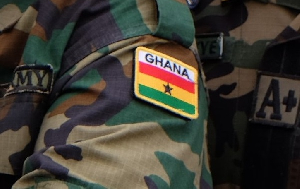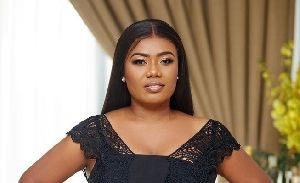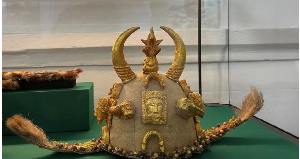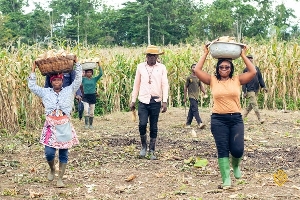Religion of Saturday, 11 May 2013
Source: Mensah, Richard Obeng
The woes of our judges
Pilate said to Him, “What is the truth?” – John 18:38a (NKJV).
Justice Barbados Ngoromah is known for his passion for freedom and justice. His constant strives to achieve excellence and integrity in all his official duties and responsibilities is also obvious to every person of average intelligence. No wonder he has risen from a magistrate to be the presiding judge of the Supreme Council of the Divided State of Honeyland. Two emerging influential leaders in the country recently had some duel. Thank God, wisdom was allowed to prevail over emotions so the case was referred to the council for peaceful adjudication. The two leaders command a wide following and each of them and their followers are very interested in the outcome of the case. The outcome of the case has the potential to either worsen the perceived division in the country or unite the people for leap advancement.
Justice Ngoromah and his other council members are being eyed by the people of Honeyland. The actions and inactions of the council members, in the course of the adjudication process, are unnecessarily scrutinized with the divisive and biased mindset of some of the citizens of the country. Some of the disciples of the main leaders demonstrate in their utterances that they have neither shelved nor separated their views from that of their dogmatic loyalty to their masters. One would have thought that they would take a cue from their masters and allowed wisdom to override their emotions and biases because of the volatile nature of the case.
The facts of the case is slightly different from the biblical account involving a decision to free either a convicted criminal or Jesus. That case was an either or affair. One person was to be freed and the other was to be crucified. Barabbas was a notorious robber but Jesus was a respected righteous leader. Pilate was by custom supposed to release either of them. Although Pilate discerned the innocence of Jesus he was nevertheless influenced by public outcry to deliver Him to the people to be crucified. However, the case before the council is somewhat different from the one that was before Pilate. The significant distinction is that the instant case is not necessarily an either or affair. Besides, the public, unlike in the biblical account, is divided in their opinions and expectations.
Will Justice Ngoromah and his other council members cave in to any of the divisive outcry of the dogmatic loyalists of the two main leaders? If not, will their prudent decision appeal to any person of average intelligence since truth is simple? Undoubtedly, Justice Ngoromah and his other council members need divine wisdom and the courage to completely and effectually adjudicate upon the matters in issue. I will therefore urge the people of Honeyland to shelve their biases and unite in their prayers for the council members to deliver ‘Solomonic’ judgment speedily. More importantly, I call on the two leaders to appeal to their dogmatic disciples to allow wisdom to override their emotions. I pray accordingly.
Richard Obeng Mensah, author of Wisdom Thoughts. Email: richardobengmensah@gmail.com Blog: Richard-obeng-mensah.blogspot.com












